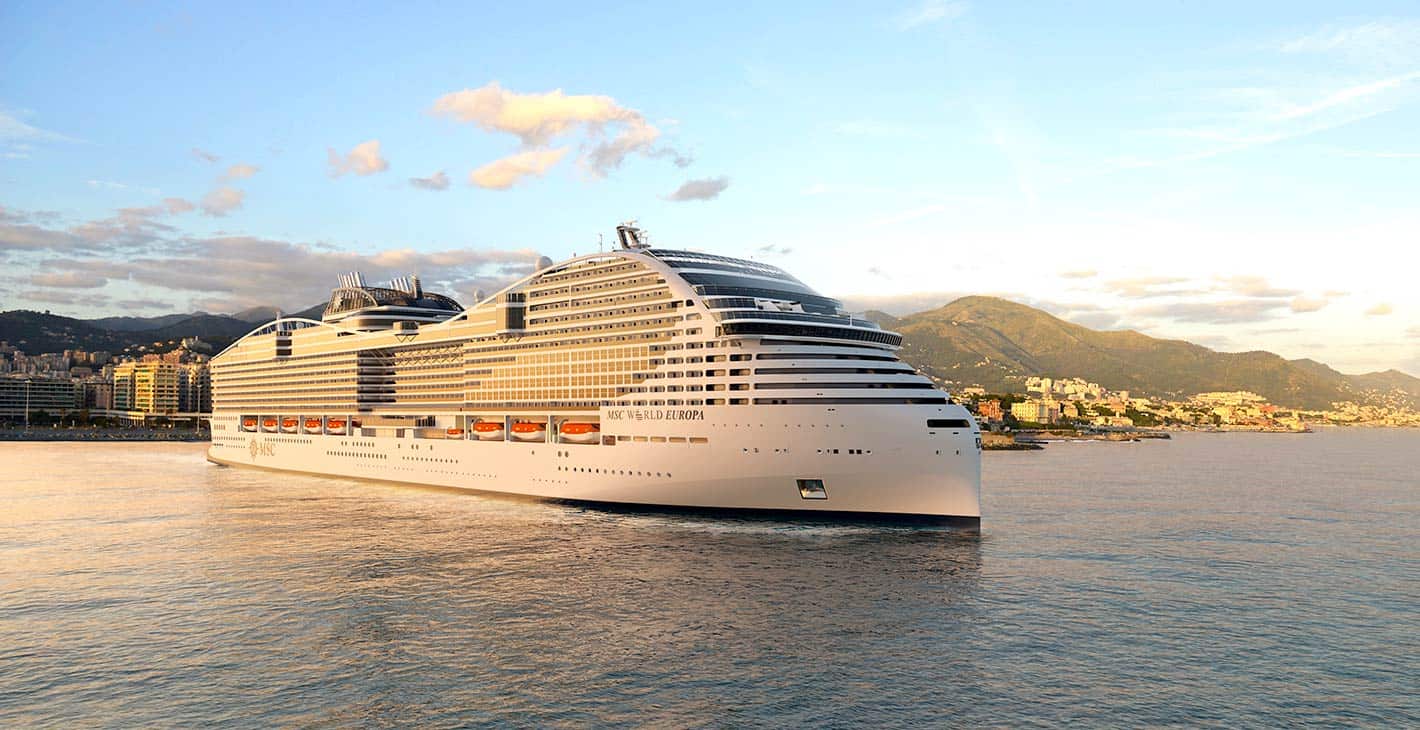Doha, Qatar—The 22-deck cruise ship MSC World Europa (floating hotel) has docked at Doha Port for FIFA World Cup fans to relish the experience of a stay in the ship.
The cruise ship can accommodate 6,700 World Cup fans. It designed with the highest standards of security and safety.
MSC Cruises, the owner of the floating hotel, announced on Oct. 31 that it will deploy MSC Opera as a floating hotel in Doha to welcome the fans of the tournament, which is scheduled to kick off on Nov. 20.
With 2, 626 cabins and 40,000m2 of public space, the ship keeps pace with the latest modern standards in terms of technology and environmentally friendly practices, and is expected to reshape the future of cruise ships with its experience full of versatile recreational options. It also features a 104m long promenade.
The ship will take its guests on a tour in which they will discover different foods and drinks from around the world through 33 restaurants and lounges, each with its own character. It will also provide entertainment activities for all ages, including 3 new concerts, 5 new theater performances, 4 unique experiences in the “Panorama Lounge”, and live performances traveling in various areas on board the ship.
The floating hotel includes the largest children’s area compared to all the ships of the MSC fleet, with an internal area of more than 766 square meters, and 7 rooms, each suitable for different age groups, from birth to 17 years old.
Children and adolescents will enjoy various entertainment programs including new and old games as well as talents programs, delivered in facilities equipped with the latest technology.
The ship offers 7 swimming pools, 13 whirlpools, and the most luxurious yacht club, which includes public spaces, outdoor areas and new suites. It will spend its first year in the waters of the Arabian Gulf, and in the summer of 2023, it will leave the region, heading towards the Mediterranean.
MSC World Europa is the first ship in the MSC fleet Cruises powered by liquefied natural gas (LNG), one of the cleanest fuels in the world, which is expected to play an important role in reducing carbon emissions from international shipping operations or bringing them to zero, and already contribute to the removal of emissions of local air pollutants such as sulfur oxides and reduce Nitrogen oxides by up to 85 percent.








